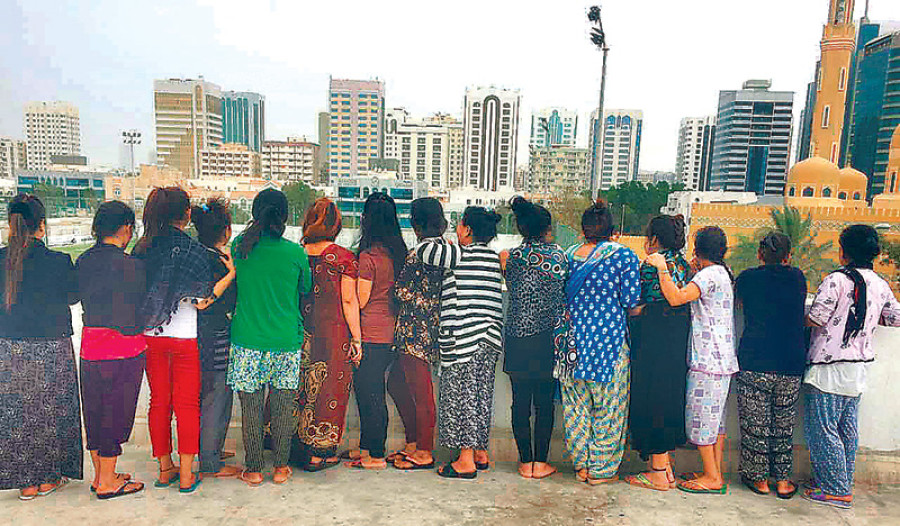Valley
House panel says immigration officials involved
A parliamentary committee says it has found involvement of employees of the Department of Immigration (DoI), an agency under the Ministry of Home Affairs, in sending Nepali women to foreign countries as domestic help through the illegal channel.
A parliamentary committee says it has found involvement of employees of the Department of Immigration (DoI), an agency under the Ministry of Home Affairs, in sending Nepali women to foreign countries as domestic help through the illegal channel.
A team of the International Relations and Labour Committee of Parliament, which returned home after conducting a field study in four Gulf countries, stated that “there is a nexus between human smugglers and employees of the DoI and that they work in cahoots to send Nepali women to various countries”.
The parliamentary team had left for Saudi Arabia, Kuwait, Qatar and the United Arab Emirates on March 18 to study the situation of Nepali workers in the Gulf countries.
“It’s a matter of grave concern that DoI employees have been working hand in glove with human smugglers,” said Prabhu Saha, chairman of the House committee who led a nine-member team to the Gulf countries. “The government will be strongly recommended to probe into the matter.”
Over 30,000 women from Nepal have reached Saudi Arabia illegally to work as domestic help and the number of women reaching other countries through the illegal channel operated in collusion of DoI employees and smugglers is equally high, the committee said.
Over 200 women are smuggled daily into different countries including Syria and Iraq where there is a ban on sending Nepalis to work. The government in May last year decided to allow Nepali women to work abroad as housemaids. The decision said Nepali women aged 24 and above “will be able to take up jobs as domestic help in the Gulf and Malaysia with the help of selected recruiting agencies”. The decision though paved the way for sending Nepali women to these countries to work as housemaids, “smuggling” of unsuspecting women into the Gulf and other countries has continued unabated.
Of those reaching the Gulf countries through the illegal channel, more than half flew from Tribhuvan International Airport while the remaining used other routes, including India and Sri Lanka. They were “easily provided” with tourist permits by DoI employees, according to the committee.
The team also found that condition of most of the women who had reached the Gulf countries to work as domestic help was not good. Majority of women working as housemaids were found to be paid too low and were living in squalid conditions.
Nepali embassies in these four Gulf countries have rescued dozens of women. They are taking refuge in shelters made by the embassies.
Though the government has introduced “free ticket and free visa” provision—applicable to those going to Malaysia, Qatar, Saudi Arabia, the UAE, Kuwait, Bahrain and Oman—its implementation has been a far cry, according to the committee, which said the scheme is limited to papers only.
Of the 1,000 Nepali migrant workers in the four countries—Saudi Arabia, Kuwait, Qatar and the UAE—interviewed by the House committee members, none of them said they had reached there under the “free visa and free ticket” facility.




 9.7°C Kathmandu
9.7°C Kathmandu













